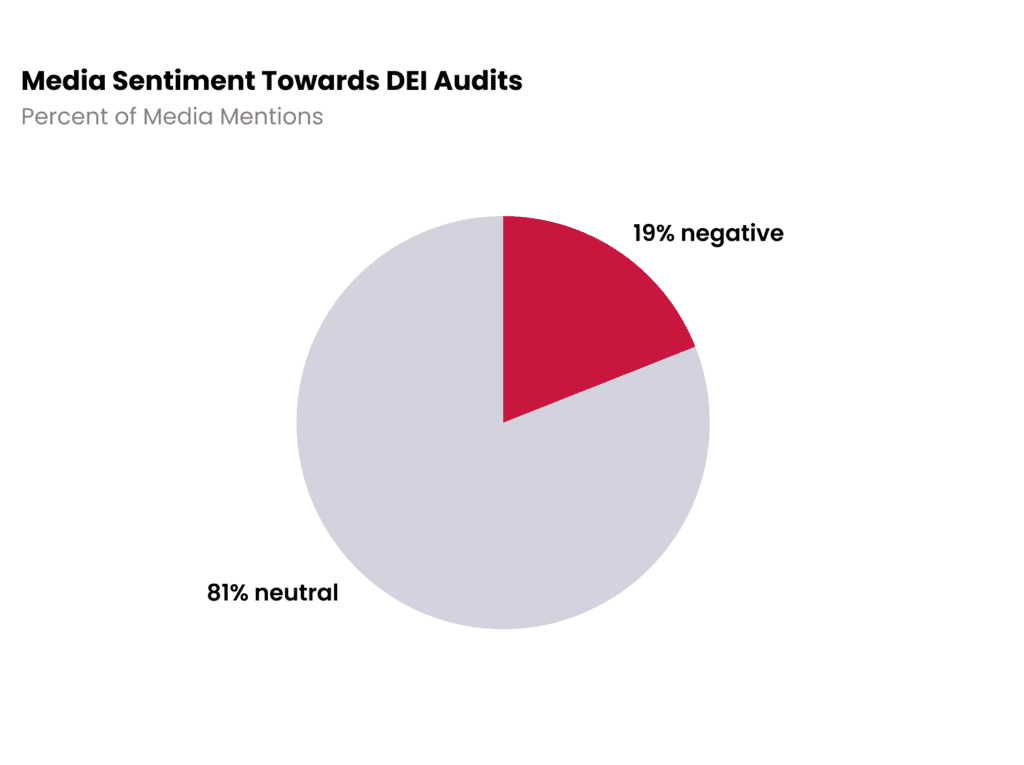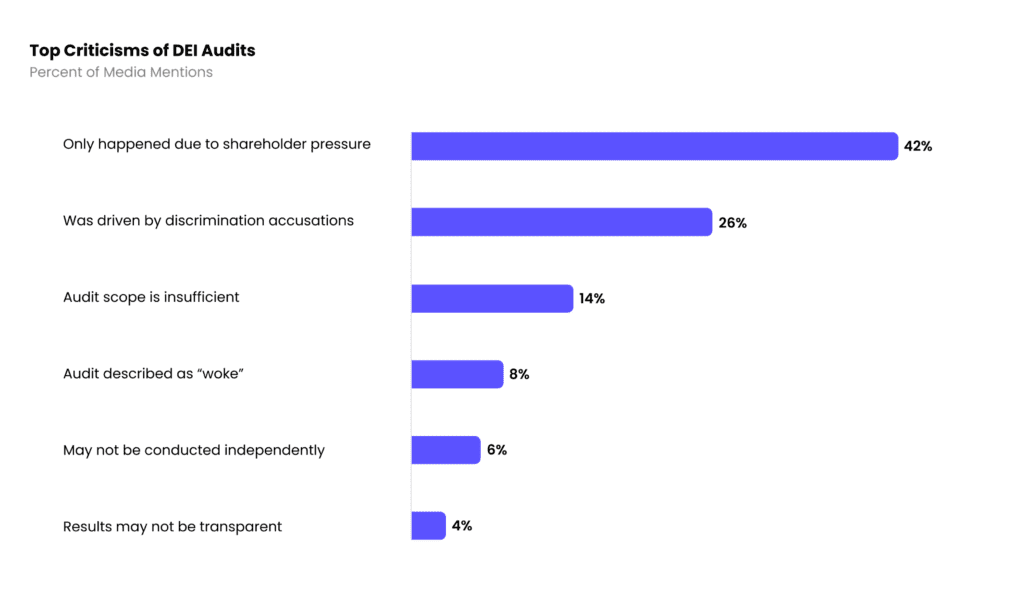
As companies and shareholders increasingly prioritize diversity and inclusion efforts, many are turning to diversity audits to evaluate their progress.
However, our recent research suggests that these audits may not have the positive media impact that communicators might hope for.

Independent reviews of diversity and inclusion efforts have led to zero media reputation gains for the companies we track in our media Benchmark. In fact, controversy and skepticism surrounding the process of conducting such audits has meant coverage is neutral at best, and sometimes even negative.
The main contributor to negative sentiment was coverage of how the decision to conduct an audit was reached. Voluntary diversity audits were often framed as a reluctant reaction to pressure from shareholders, with plenty of commentary around companies’ initial pushback to the idea. Also, coverage often mentioned existing allegations of discrimination to explain shareholder demands for audits. This context undercut the potential reputational gains for diversity audit stories.
Another reason for the lukewarm coverage is that the auditing process is vulnerable to being portrayed as performative or insufficient. For example, the qualifications or independence of external auditors were often questioned in media coverage. Alternatively, if a company conducted an internal audit, media coverage suggested that the audit was biased or lacking in transparency. Issues related to the sufficiency, independence and transparency of audits together accounted for 24% of negative messages.

The recent politicization of corporate DEI initiatives also plays a role. The media will publish the ‘anti-woke’ rhetoric of shareholders who take issue with companies choosing to perform a diversity audit. This results in unwanted controversy – whether the articles in question are written in support of such views or not.
When diversity audits materialize, communicators should be prepared for the media to broadcast shareholder views. Whether these shareholders are for or against diversity audits, their comments are likely to be critical of the company, undermining any potential reputational gains.
In theory, showcasing the progress of diversity audits should be a great PR tool to demonstrate action and commitment to an important issue. However, in practice, results are neutral at best. While the media continues to frame these stories from the viewpoint of critical shareholders, communicators should minimize proactive messaging about audits, and look elsewhere for stories that can more effectively communicate their brands’ DEI values.